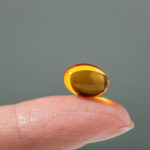By David Blyweiss, M.D.
Mainstream media thrives on fear, especially if it involves a health scare. I was reminded of this after a recent copy of Consumer Reports landed on my desk warning readers of The 12 Most Dangerous Supplements.
The article profiled several consumers who took tainted or overhyped supplements that sent their bodies into dramatic disarray. The Consumer Reports story says the 12 dietary supplements have been linked by clinical research or case reports to cancer, coma, heart problems, kidney damage, liver damage, even death. So what are these 12 perilous supplements? Most are herbs and compounds you’ve probably never even heard of—aconite, bitter orange, chaparral, colloidal silver, coltsfoot, comfrey, country mallow, germanium, greater celandine, kava, lobelia and yohimbe. Aconite? Coltsfoot? Really? Some of these, like country mallow aren’t even allowed to be sold in the United States!
Not only are most of these supplements fairly obscure, Consumer Reports painted them all with the same broad brush, stating that they were linked to “serious adverse events.” The problem is, that statement isn’t necessarily accurate.
Yes, aconite is toxic in its raw state. Known as the queen of poisons, picking and eating aconite au natural can cause a very uncomfortable death. But when this plant is cooked and processed, it becomes one of the most useful natural medicines around. Often used in Traditional Chinese Medicine and homeopathic remedies, aconite can diminish the pain of neuralgia, lumbago and rheumatism when applied topically. Taken internally under the supervision of a qualified naturopath, herbalist or homeopath, a processed aconite tincture can be useful in treating everything from pneumonia to some forms of heart disease.
Some of the other supplements on the list are also quite beneficial when taken properly. Used topically, chaparral is one of the top picks for treating wounds and preventing infection. Yohimbe is often used to treat erectile dysfunction and obesity, and it can be very effective for both. But, like aconite, it should be used cautiously and ideally under a doctor’s care.
Greater celandine extracts have been shown to stimulate the production of bile and pancreatic digestive enzymes in human studies. Test tube and animal studies have also shown celandine extracts and purified alkaloids to have anti-inflammatory, anti-cancer and antimicrobial properties. But there is some concern about liver toxicity, therefore it’s best to take greater celandine only under the supervision of a healthcare provider.
And, speaking of liver toxicity, kava was much maligned a few years ago because of reported cases of liver failure. Under pressure from consumer groups like Consumer Reports and the FDA, supplement makers quickly pulled the herb off store shelves. The problem was, there are NO published reports or clinical trials to show that kava can produce liver toxicity. None, nada, zip. Kava should not be on this list at all.
The bottom line is that Consumer Reports and the media outlets that featured the story are trying to scare the dickens out of you in the hope that you will opt for a high priced pharmaceutical drug. What they don’t tell you is this: In 2008, the FDA took in 482,154 adverse-event reports for prescription drugs. And, according to Dr. Gary Null, author of Death by Medicine, 106,000 Americans die every year from prescription drug use. On the flip side, it’s more likely that you will be struck by lightning than die from using a dietary supplement. In fact, the FDA has received only 2,621 adverse reaction reports since it started collecting data on the safety of supplements in 1993. Of those, only 101 reported a death. That’s an average of fewer than six fatalities per year. In my book, that’s pretty impressive.
The World's Quickest Solution for Ending Prostate and Urinary Misery
This has recently been revealed to be one of the only real breakthroughs in prostate health.
The seeds of a strange fruit (sometimes called "Chinese Apples") hold powerful phytonutrients that are a revolution in prostate health.
In fact, UCLA and Veterans Administration research have now proved this to be true.
Not only that, but it may be the worlds quickest solution for ending prostate misery.
Simply stated, these phytonutrients represent a huge step beyond beta sitosterol, saw palmetto, and other phytosterols alone.
Simply click HERE if you want to have fast prostate relief...restful, uninterrupted sleep...no more constant "urges to go"...enhanced virility...and optimal prostate support for life.
So before you start clearing your medicine cabinet of all things herbal, take a breath and remember that this is just another unsubstantiated volley in the war against dietary supplements. Used properly, vitamins, minerals and herbs are an extremely effective way to foster good health—and they’re often safer than the pills your doctor gives you.
References:
Dangerous supplements: What you don’t know about these 12 ingredients could hurt you. Consumer Reports. September 2010.
Harmon K. Prescription Drug Deaths Increase Dramatically. Scientific American. April 6, 2010. Available at www.scientificamerican.com/article.cfm?id=prescription-drug-deaths
Lazarou J. Incidence of adverse drug reactions in hospitalized patients: a meta-analysis of prospective studies. Journal of the American Medical Association . 1998;279:1200-1205






